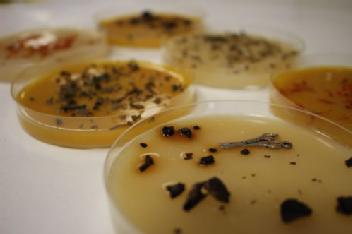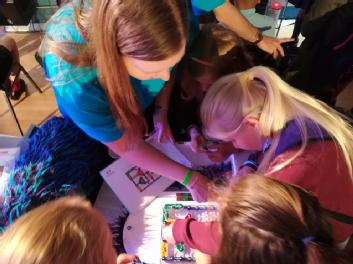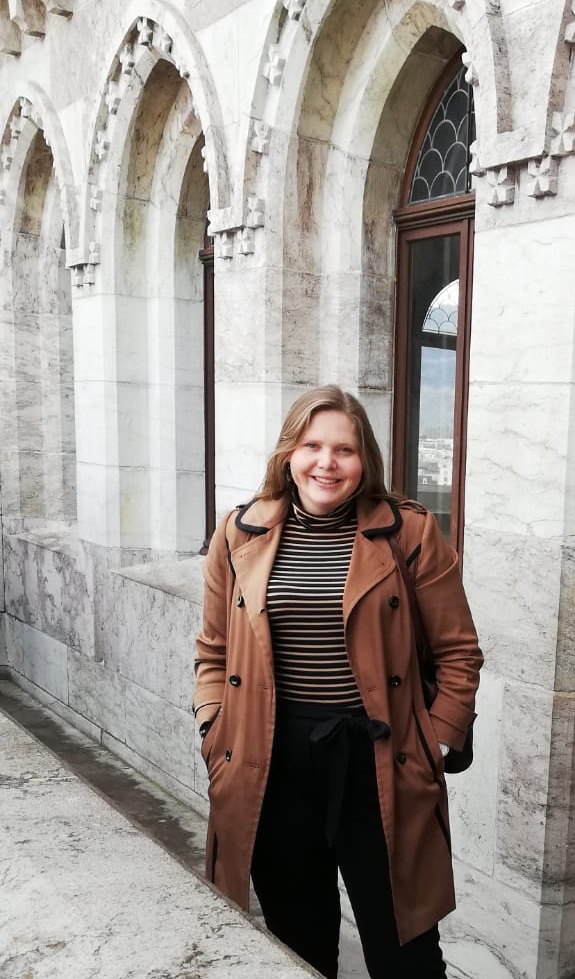Charlotte Gruender ePortfolio
Research
My PhD is BBSRC and EPSRC funded, through the SynBio CDT programme. I have completed a year training with the Doctoral Training Centre, University of Oxford, applying engineering, statistics and computer science to my biochemistry background. I now work on a project entitled 'Assessing the role of a cryptic DMS/TMA redox cycle in natural and synthetic bacterial communities', supervised by Hendrik Schäfer and Yin Chen.
Microorganisms play a significant role in global biogeochemical cycling and climate regulation, such as the microbial metabolism of organic sulfur compounds. Dimethylsulfide (DMS), a volatile organosulfur compound, is such an example, in flux between the marine environment and the atmosphere. Recent research identified a new link between N and S cycles, showing Trimethylamine monooxygenase (Tmm), known to oxidise trimethylamine (TMA) to trimethylamine-N-oxide (TMAO), can also oxidise DMS to dimethylsulfoxide (DMSO) under aerobic conditions (Lidbury et al. 2016). This could be a major sink for DMS in oxic environments and an important source for DMSO and TMAO feeding into a cryptic redox cycle at ecological oxic/anoxic interfaces of oceans, lake sediments and salt marshes.
This fundamental knowledge could be exploited to better understand the role of DMSO/TMAO cycling in industrially and medically relevant biofilms which too contain such oxic/anoxic interfaces (Huang et al. 2016; Dhouib et al. 2016). For instance by potentially providing a fitness advantage to opportunistic pathogens with the ability to reduce DMSO/TMAO. The initial aim of my research is to characterise the fundamental aspects of a potentially cryptic DMS/DMSO and TMA/TMAO redox cycle, before moving on to apply it to a synthetic minimal microbial community.
Interdisciplinary work
I spent three months researching the societal implications of my work into global food security at HeLEX, University of Oxford. I held focus groups with stakeholders from diverse socioeconomic, political and religious backgrounds, to discuss their opinions and bias on using designed and genetically modified microbial communities to improve our current food system. I researched the relevant ethics and philosophy, building on my personal interests, and the policy surrounding such industries. I presented my research at Linacre College, Oxford as part of their public Seminar Series, use it in my own current research design, and as a Human Practices mentor to undergraduate iGEM teams. Through this funding, I also participated in the Horizon 2020 4th annual NUCLEUS conference, discussing my work with other RRI practitioners from across Europe. To better my understanding of science policy, I attended an advanced science policy course at Wellcome Genome Campus to discuss how uptake of research into UK policy can be improved, with fellow academics, learned societies leaders and members of parliament.
I have also worked with Science Gallery London as a Mediator, where my role was to initiate discussions on complex scientific concepts and political ideas with the public, based on artwork displayed in the gallery and pop-up events. It aimed to educate and promote inclusivity, and provided an alternative, accessible, yet still thought-provoking communication format. I continue to work on these collaborations, having recently organised and chaired a SynBioArt workshop, hosting artists Anna Dumitriu and Alex May, and public engagement experts, to educate researchers in interdisciplinary collaborations and creative research. I have successfully secured a Wellcome Trust Warwick QBP Public Engagement grant to train scientists in constructive engagement through a science short-film course. This will be presented as a tool for future engagement workshops, and the films will be shown at the British Science Festival 2019.

Outreach



